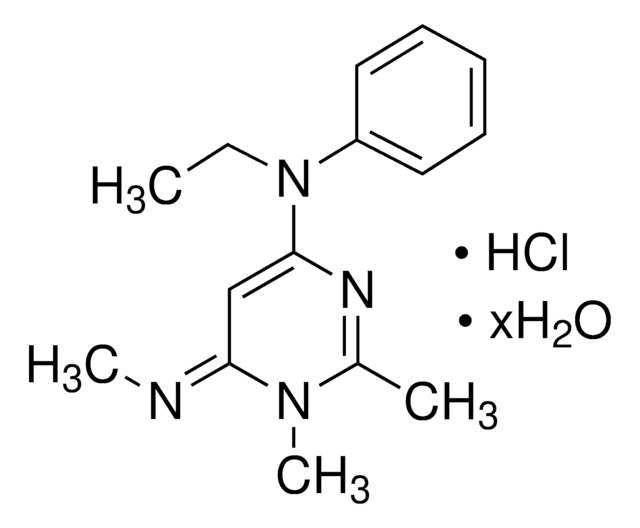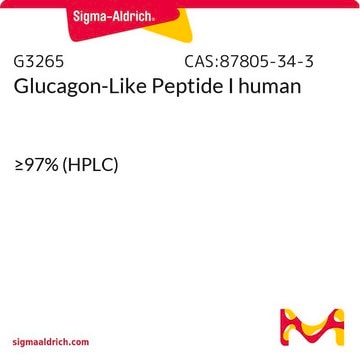Z0127
Zatebradine hydrochloride
≥98% (HPLC), powder
Synonym(s):
7,8-Dimethoxy-3-[3-[-N-[2-(3,4 dimethoxyphenyl)ethyl]-N-methylamino]propyl]-1,3,4,5-tetrahydro-2H-3-benzazepin-2-one hydrochloride, UL-FS49
About This Item
Recommended Products
Quality Level
Assay
≥98% (HPLC)
form
powder
storage condition
desiccated
color
white
solubility
H2O: >10 mg/mL
originator
Boehringer Ingelheim
storage temp.
2-8°C
SMILES string
Cl[H].COc1ccc(CCN(C)CCCN2CCc3cc(OC)c(OC)cc3CC2=O)cc1OC
InChI
1S/C26H36N2O5.ClH/c1-27(13-9-19-7-8-22(30-2)23(15-19)31-3)11-6-12-28-14-10-20-16-24(32-4)25(33-5)17-21(20)18-26(28)29;/h7-8,15-17H,6,9-14,18H2,1-5H3;1H
InChI key
ZRNKXJHEQKMWCH-UHFFFAOYSA-N
Application
- as an If blocker to study its effects on cardiomyocyte clusters (CMCs)
- as a hyperpolarization-activated and cyclic nucleotide-gated (HCN) channel inhibitor to study its effects on viability of degenerating rod or cone photoreceptors in mice
- as a bradycardiac agent to study its effects on tachycardia and elevated temperature in fish
Biochem/physiol Actions
Features and Benefits
Storage Class Code
11 - Combustible Solids
WGK
WGK 3
Flash Point(F)
Not applicable
Flash Point(C)
Not applicable
Personal Protective Equipment
Certificates of Analysis (COA)
Search for Certificates of Analysis (COA) by entering the products Lot/Batch Number. Lot and Batch Numbers can be found on a product’s label following the words ‘Lot’ or ‘Batch’.
Already Own This Product?
Find documentation for the products that you have recently purchased in the Document Library.
Articles
Cyclic nucleotides like cAMP modulate cell function via PKA activation and ion channels.
Cyclic nucleotides like cAMP modulate cell function via PKA activation and ion channels.
Cyclic nucleotides like cAMP modulate cell function via PKA activation and ion channels.
Cyclic nucleotides like cAMP modulate cell function via PKA activation and ion channels.
Our team of scientists has experience in all areas of research including Life Science, Material Science, Chemical Synthesis, Chromatography, Analytical and many others.
Contact Technical Service








